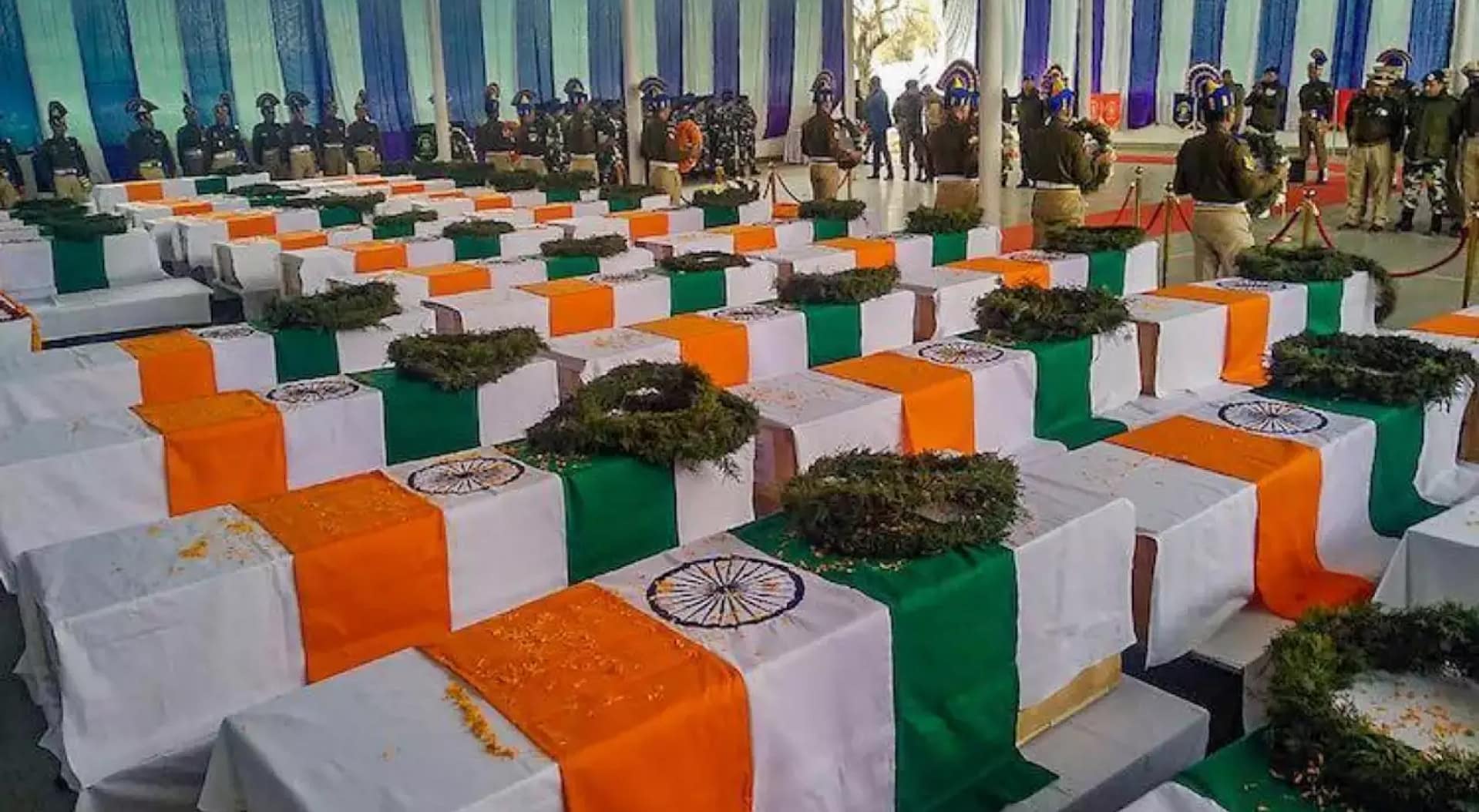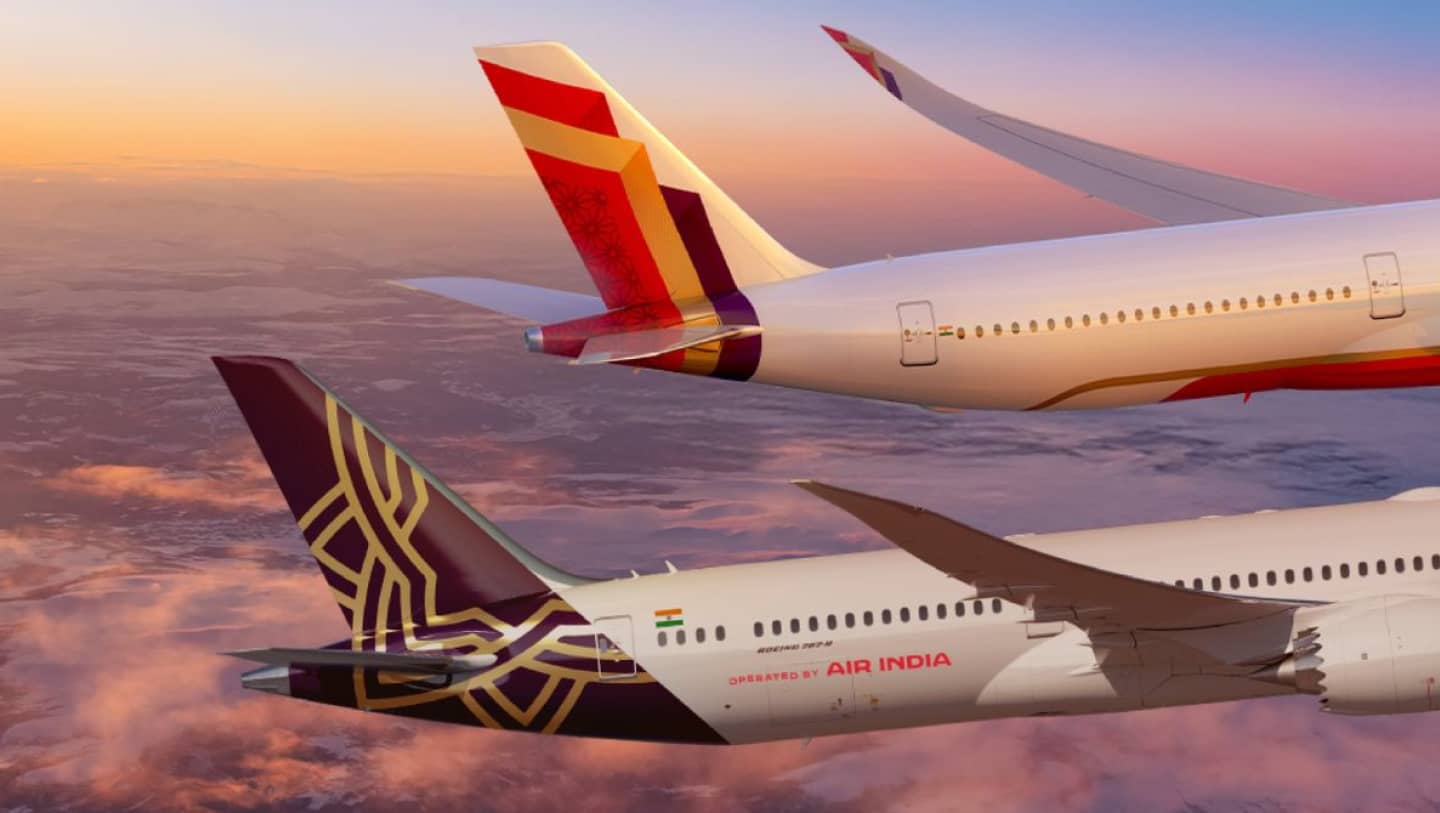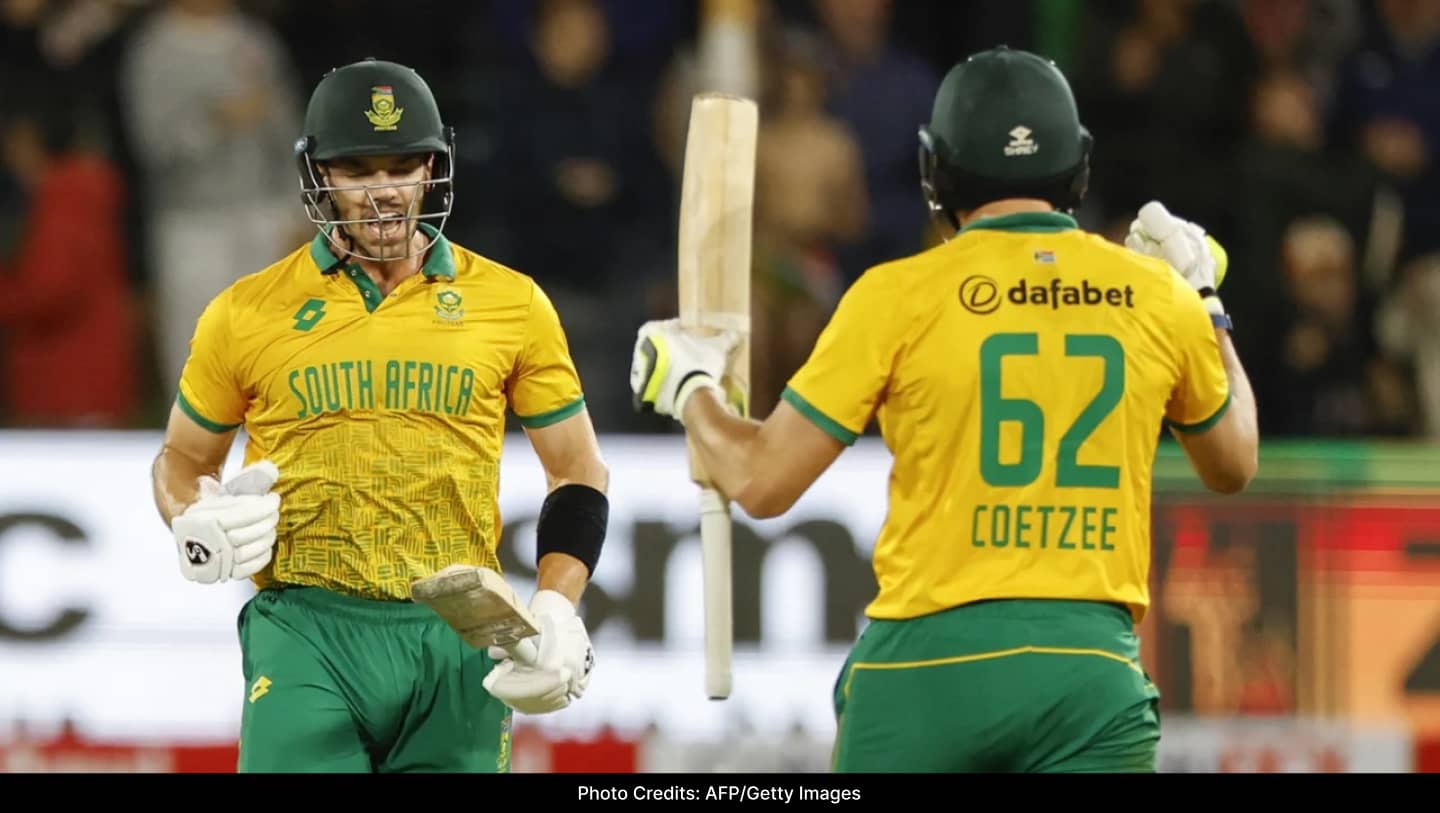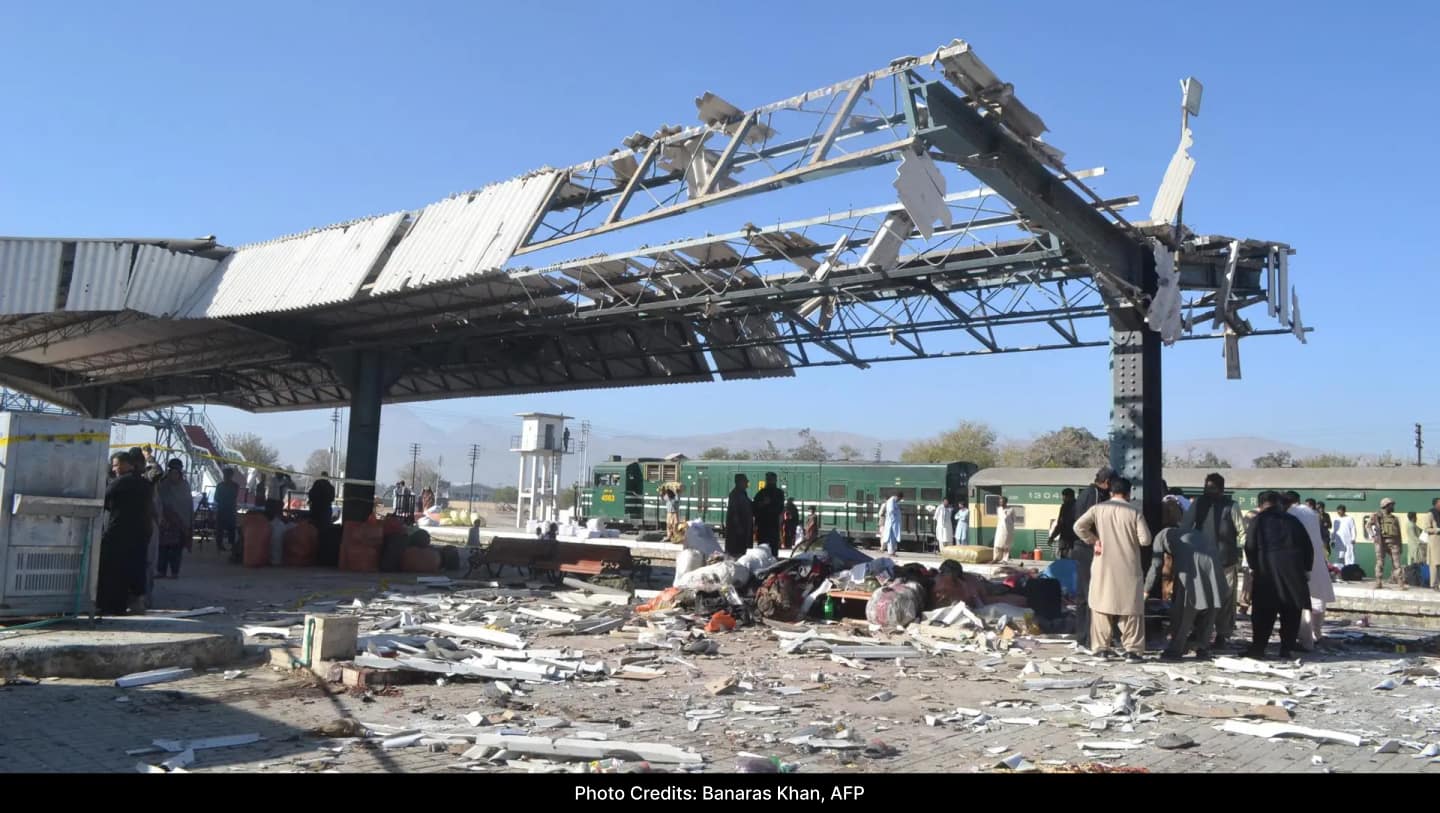Photo – PTI
It has been five years since the devastating terror attack in Pulwama that claimed the lives of 40 CRPF personnel on duty. On this day in 2019, a suicide bomber attacked a convoy of 78 vehicles carrying more than 2,500 troops on the Jammu-Srinagar National Highway.
In one of the worst terror attacks in history, 40 jawans were killed and more than 35 injured. The attack shook the nation to its core and serves as a reminder of the supreme sacrifice our soldiers made.
The terrorist group Jaish-e-Mohammed (JeM) claimed responsibility for the attack. Twelve days later, in the late hours of February 26, Indian Air Force jets bombed JeM’s Balakot camp located in Pakistan’s Khyber Pakhtunkhwa.
How did India react after the terrorist attack?
The attack drew intense reactions from the nation and the Indian government condemned the terror attack and accused Pakistan of giving full freedom to Masood Azhar, who led JeM to operate in his country.
The attack resulted in a 200% increase in customs duties on all Pakistani goods. Indian Prime Minister Narendra Modi has given security forces full freedom to decide the time and place of all future actions. In his speech, PM Modi also mentioned that the terrorists have made a huge mistake and will have to pay the price.
Operation Bandar
Indian security forces launched a counter-attack called ‘Operation Bandar’ which was carried out on 26 February 2019. India was retaliating for the Pulwama attack in the Balakot area of JeM camps in the Khyber Pakhtunkhwa province of Pakistan. India entered 50 km from the Line of Control, where the Indian Air Force (IAF) deployed Israeli-made “smart bombs” and 12 Mirage 2000 fighter jets, killing hundreds of terrorists. This was the first Indian attack carried out by India in Pakistan after the 1971 war.




